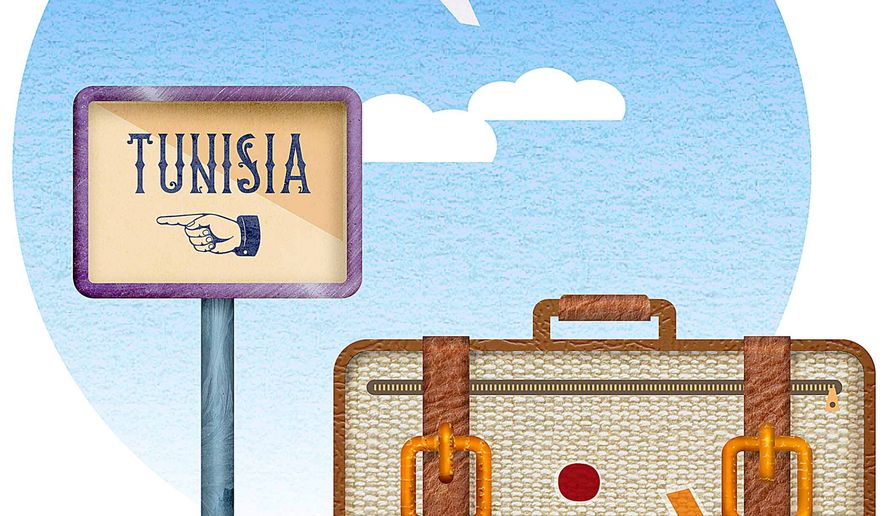OPINION:
For the first time in five years, Libya is progressing toward the establishment of a viable national government. That is good news for Libya and also for Tunisia.
The agreement to form a Libyan Government of National Accord vindicates Tunisia’s approach of settling differences through compromise and negotiations.
Tunisia’s free and fair elections of 2014 came only after an inclusive dialogue between the various political actors had created a climate of civil peace and coexistence in the country. The Nobel Peace Prize awarded to the Tunisian civil society groups who led the process was in recognition of the value this consensus-based approach that helped Tunisians avoid the tragedy of zero-sum politics and its disastrous repercussions.
Today, stability in next-door Libya can only serve Tunisia’s national interest. That is why we have spared no effort bridging differences between Libyan protagonists. Toward this end, we have consistently extended our support to United Nations initiatives and to the efforts of Prime Minister-designate Fayez Sarraj. That was the gist of the message Tunisian Prime Minister Habib Essid and I carried to Tripoli earlier this month.
The tensions and conflicts that Libya went through since 2011 have created a perfect environment for violent jihadists, including those who were involved in terrorist attacks in Tunisia in 2015. These attacks were meant to destabilize Tunisia, wreck its economy and cut it off from the rest of the world. The terrorists failed.
Tunisians rose in unity against the terrorist threat. Our government thoroughly reviewed and strengthened anti-terrorism efforts. With the help of our regional and international partners, especially the United States, we have boosted the readiness and the efficiency of our security forces, which have successfully dismantled many terrorist cells and prevented a number of attacks. We have also enhanced our border security with Libya and are in the process of erecting a border fence with a state-of-the-art electronic monitoring system. The vigilance of Tunisian troops is proving to be an efficient shield against terrorist infiltration. Earlier this year, Tunisian forces swiftly crushed an attempted incursion by Islamic State extremists in the border town of Ben Guerdane. Enhancing our security is not a luxury. It is a necessity to protect our young democracy.
Tunisia is at a crucial junction. In addition to restoring security, we must generate economic recovery. Neither of these objectives are easy tasks, but Tunisia’s democratically elected leadership has the vision and the determination to make the necessary reforms.
We are working to set forth new rules of governance that enshrine transparency and fairness between citizens. Tunisia’s Parliament will soon examine a package of legislative initiatives designed to promote a friendlier environment for business and investment so as to speed up growth and reduce joblessness.
We will rely above all on our own resources to meet the daunting challenges at hand. Some of these challenges are the cumulative result of decades of inadequate development policies. But the unmet expectations of disadvantaged segments of the population require immediate attention. Recent expressions of discontent by unemployed youth were a reminder of the risks involved in failing to address the demands of young Tunisians who five years ago took to the streets demanding freedom, dignity and jobs.
Our tourism industry is still suffering from last year’s terror attacks, as are the half-million Tunisians whose livelihood depends on tourism. The time has come for foreign governments to review their travel advisories regarding Tunisia in light of the tangible improvements in our security situation. Our international partners know full well the progress achieved in this area.
There should be no doubt also about our commitment to democracy. Five years after the 2011 revolution, Tunisia’s democratic experiment is on the right track and Tunisians’ hard-earned freedoms are irreversible. Recently, the international media watchdog Reporters Without Borders ranked Tunisia the leading Arab country in terms of press freedom.
And while we appreciate the assistance we have received from our friends, we also believe that the scope of support should be more commensurate with our challenges and with the fact that Tunisia serves as a model for other struggling societies in the Middle East and North Africa. This calls for exceptional initiatives from the international community to spur the growth and development that our economy — and our people — need, the same kind of initiatives the world undertook to bolster the economies of Eastern European countries following the fall of the Soviet Union. Investing in Tunisia’s unique democratic experiment will yield dividends to all.
• Khemaies Jhinaoui is the Tunisian minister of foreign affairs.




Please read our comment policy before commenting.